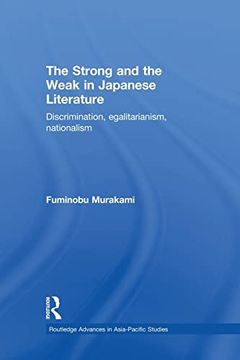The Strong and the Weak in Japanese Literature: Discrimination, Egalitarianism, Nationalism (in English)
Synopsis "The Strong and the Weak in Japanese Literature: Discrimination, Egalitarianism, Nationalism (in English)"
This book uses texts from classical to modern Japanese literature to examine concepts of 'respect for the strong', as a notion of an evolutionary society, and 'sympathy for the weak', as a notion of a non-violent and changeless egalitarian society. The term strong refers not just to those with strength and power. It also includes other ideal attributes such as beauty, youth and goodness. Similarly, the term weak implies not only the weak and infirm, but also the disadvantaged, the indecent, the unsophisticated and those generally shunned by society. The former are associated not only with the power of life, competition, evolution, progress, development, ability, effectiveness, efficiency, individuality, the future, hope and romance, but also with violence, fighting, bullying, discrimination and sacrifice. The latter, in contrast, invoke notions of peace, egalitarianism, anti-discrimination and welfare, as well as stagnation, retreat, retrogression, degeneration and the decline of vital powers. By using these two concepts Murakami skillfully weaves a narrative that is part literary criticism, part social commentary. As such the book will be of huge interest to not only scholars and students of Japanese literature, but also those of Japanese society and culture.

